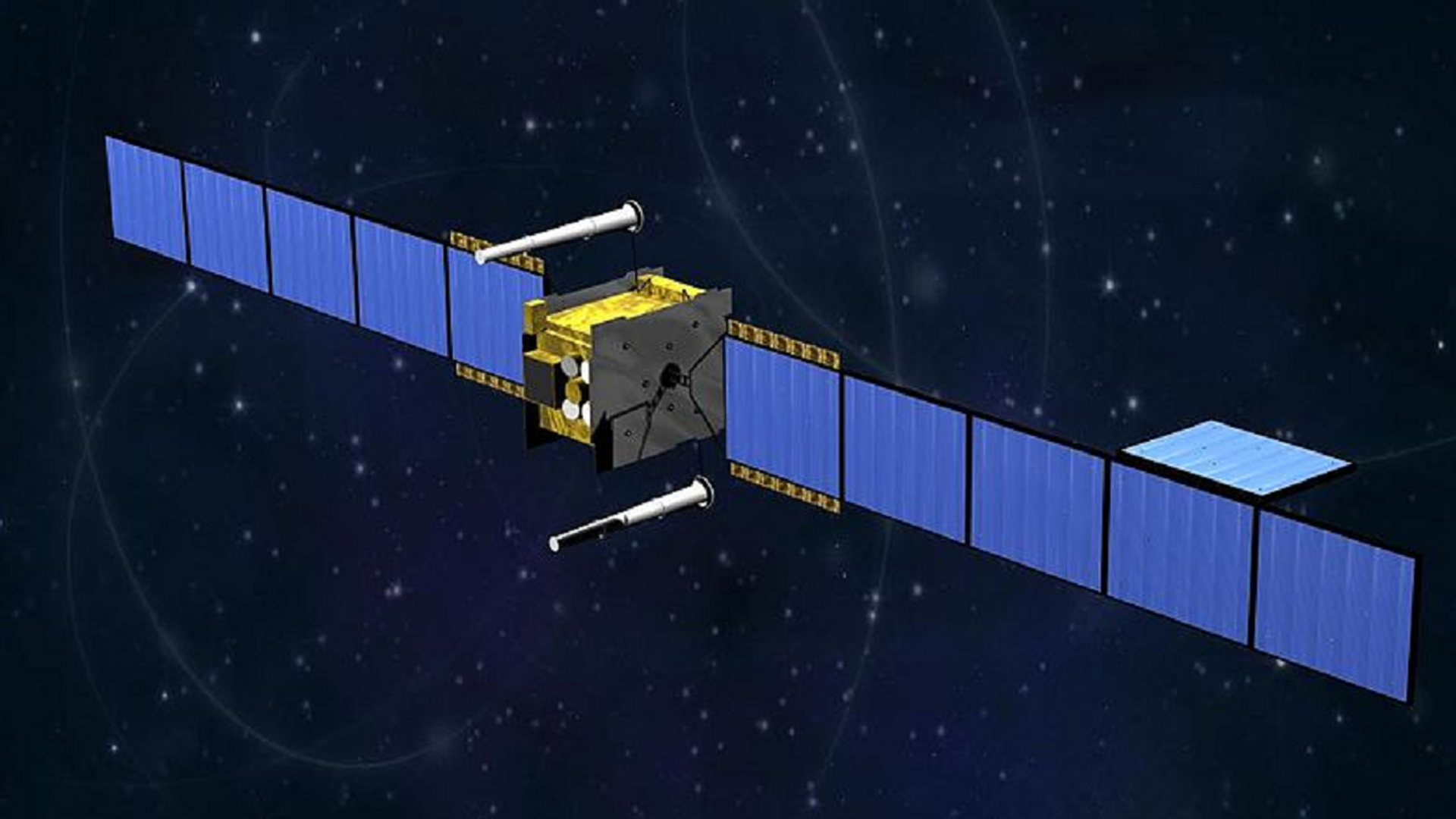https://sputnikglobe.com/20231004/us-fines-major-tv-provider-150000-over-space-debris-after-failed-satellite-deorbit-1113935864.html
US Fines Major TV Provider $150,000 Over Space Debris After Failed Satellite Deorbit
US Fines Major TV Provider $150,000 Over Space Debris After Failed Satellite Deorbit
Sputnik International
A major US television provider has been fined by the Federal Communications Commission (FCC) for creating space debris after it failed to properly dispose of one of its retired communications satellites.
2023-10-04T21:28+0000
2023-10-04T21:28+0000
2023-10-04T21:25+0000
beyond politics
federal communications commission (fcc)
satellite
retirement
fine
dish networks inc
https://cdn1.img.sputnikglobe.com/img/107939/40/1079394065_0:113:1200:788_1920x0_80_0_0_d36d5045026a75eaab30700d5867b294.png
The FCC announced on Monday it was fining Dish Network $150,000 for failing to properly remove a satellite from geostationary orbit, creating space debris that could pose a danger to other satellites or spacecraft.Calling the decision a “breakthrough settlement,” the federal regulator said it had made it “very clear the FCC has strong enforcement authority and capability to enforce its vitally important space debris rules.”According to the FCC, Dish had planned for nearly a decade to retire the EchoStar-7 satellite in May 2022, noting it had approved the plan in 2012. However, in February of last year, three months before the planned decommissioning, Dish said the satellite had insufficient propellant to make the required maneuver.Dish was supposed to bring the EchoStar-7 down to an altitude of roughly 300 kilometers above the Earth from its distant geostationary orbit of 35,786 kilometers, a so-called "graveyard orbit." Instead, Dish dumped the satellite just 122 kilometers away from its previous orbit, near to the orbital paths of other geostationary satellites.The FCC decision also requires the company to adopt new safety measures, such as better tracking of satellites’ propellant reserves, providing more details about how and when it will dispose of each satellite, and training employees on complying with space rules. Dish has 30 days to assign a new senior corporate manager to serve as compliance officer for the effort.As the number of satellites has dramatically increased in recent years, the risk of space debris has become greater, prompting regulators to crack down on its creation and prompting scientists to attempt to devise ways of controlling the waste.
https://sputnikglobe.com/20230926/nasa-fields-request-for-space-tug-designs-for-deorbiting-iss-in-2030-1113702297.html
Sputnik International
feedback@sputniknews.com
+74956456601
MIA „Rossiya Segodnya“
2023
News
en_EN
Sputnik International
feedback@sputniknews.com
+74956456601
MIA „Rossiya Segodnya“
Sputnik International
feedback@sputniknews.com
+74956456601
MIA „Rossiya Segodnya“
dish network; fcc fine; satellite; deorbiting
dish network; fcc fine; satellite; deorbiting
US Fines Major TV Provider $150,000 Over Space Debris After Failed Satellite Deorbit
A major US television provider has been fined by the Federal Communications Commission (FCC) for creating space debris after it failed to properly dispose of one of its retired communications satellites.
The FCC
announced on Monday it was fining Dish Network $150,000 for failing to properly remove a satellite from geostationary orbit, creating space debris that could pose a danger to other satellites or spacecraft.
Calling the decision a “breakthrough settlement,” the federal regulator said it had made it “very clear the FCC has strong enforcement authority and capability to enforce its vitally important space debris rules.”
According to the FCC, Dish had planned for nearly a decade to retire the EchoStar-7 satellite in May 2022, noting it had approved the plan in 2012. However, in February of last year, three months before the planned decommissioning, Dish said the satellite had insufficient propellant to make the required maneuver.
Dish was supposed to bring the EchoStar-7 down to an altitude of roughly 300 kilometers above the Earth from its distant geostationary orbit of 35,786 kilometers, a so-called "graveyard orbit." Instead, Dish dumped the satellite just 122 kilometers away from its previous orbit, near to the orbital paths of other geostationary satellites.

26 September 2023, 20:07 GMT
“As satellite operations become more prevalent and the space economy accelerates, we must be certain that operators comply with their commitments,” the FCC said.
The FCC decision also requires the company to adopt new safety measures, such as better tracking of satellites’ propellant reserves, providing more details about how and when it will dispose of each satellite, and training employees on complying with space rules. Dish has 30 days to assign a new senior corporate manager to serve as compliance officer for the effort.
There are currently 34,580 debris objects being tracked by the Space Surveillance Networks, although according to the European Space Agency (ESA), there are thousands of smaller objects that aren’t being tracked.
Orbital objects whiz through space at tens of thousands of miles per hour, making even very small pieces of kind into dangerous projectiles that could damage satellites, space stations, or even humans on spacewalks.
As the number of satellites has dramatically increased in recent years, the risk of space debris
has become greater, prompting regulators to crack down on its creation and prompting scientists to attempt to devise ways of controlling the waste.



